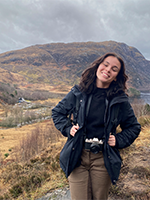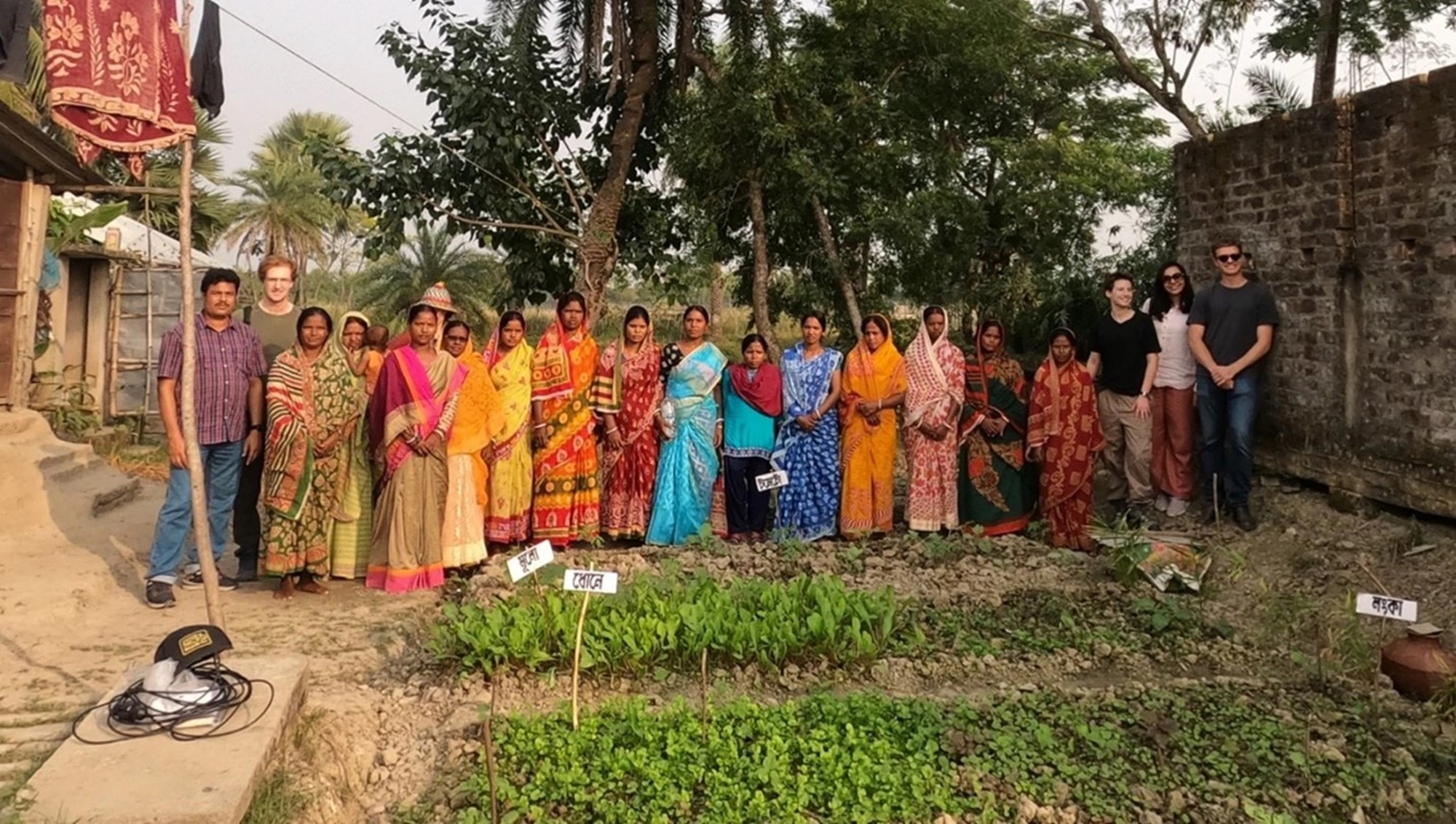By Emma Schneck
SoGE Students Embark on Water Adaptation Photojournalism Research Project
In brief
Traversing their way across Sikkim and West Bengal, India, a team of five SoGE MSc students led a research expedition to uncover the latest in water adaptation and hydrology.
They say that education can take you to far-off places. For a team of five SoGE students, their master’s experience at SoGE led them to embark on a self-driven research expedition across India. The West Bengal Water Project is spearheaded by field team Raphaela Betz (MSc in Water Science, Policy, and Management), William Wallock (MSc in WSPM), Patrick Robichaud (MSc in WSPM), and Susana Higueras (MSc in Nature, Society, and Environmental Governance), as well as Victoria Taylor (MSc in WSPM) helping from afar. The project aims to research and understand water adaptation strategies currently being adopted throughout the states of West Bengal and Sikkim, India. As water security plays a crucial role in our changing global climate, understanding emerging knowledge and strategies for water adaptation is paramount for ensuring large-scale access to clean and safe water.
Q: What is the aim of the West Bengal project?
Patrick: “Our main aim was to develop a journalistic project looking at how hydrology is changing in Sikkim and West Bengal… One thing we are looking out for is the different approaches to solving issues around water, and what interesting adaptation strategies are currently happening. This area is already extremely vulnerable to climate change, yet there are already amazing community-led adaptation strategies on the ground.
We have a few different outcomes we envision for the project. One of them is a photojournalism project with media organization OneWater (onewater.blue, which was also formed by students of the MSc in WSPM), a short film, and a stakeholder forum in 2024.”
Susy: “The decision to use a mixed method approach of photojournalism allowed us to learn and draw insights from the various strategies of local and grassroots organizations, and present them creatively in our outcomes.”

Q: Who are you working with?
William: “Our SoGE faculty sponsor is Dr Patrick Thomson, who leads the Smart Water Group in the department. We also partnered with several researchers within Bengali universities and a handful of local civil society organizations. The universities include Sikkim University, Kolkata University, and Jadavpur University. Each is a leading academic institution in the region. The Direct Initiative for Social Health Action (DISHA), one of our regional partners, works on empowering the political voice of fishing communities. Professional Assistance for Development Action (PRADAN), another of our regional partners, works to improve the livelihoods of rural communities through income diversification projects. Development Research Communication & Services Centre (DRCSC), our key regional partner, works to holistically improve regional agricultural and water-use practices.”

Q: How did the project come about?
Raphaela: “West Bengal faces immense pressure, experiencing extremes in various aspects. Through my previous job, I had established connections with organizations and researchers in the region, and I knew they were doing exciting work on water-related climate adaptation. At an event of the Oxford University Exploration Club (OUEC) in early Michaelmas, it clicked for me that the club could be an enabler for this research. We pitched the idea to James Kempton, the club’s president at the time, and assembled as a team.”
William: “Given our funding situation, we weren’t even sure it was going to happen until three months ago [...] a lot of the early work involved finding funding and partners. The team worked together on all aspects of the project, from filling out funding applications to reaching out to researchers and potential partners.”

Q: What was prep work like?
William: “A lot of the prep work involved reaching out to people familiar with water management in the region. [...] We also underwent cultural and ethics training to prepare ourselves for fieldwork in West Bengal. As a group of four white-passing people from the University of Oxford, we understand that the legacies of colonialism are still alive and well. Through our training and work with partners on the ground, we aimed to continually reflect on how we could interact in ways that are more appropriate and keep each other accountable.”

Q: What has fieldwork entailed?
Susy: “We’ve been to a lot of places, so our fieldwork has entailed moving a lot. We’ve been visiting different projects and seeing how they have impacted people's livelihoods. Throughout the fieldwork, we recorded interviews with community members and our partners to explore certain issues further. We are now working on the production of short documentary-style videos with this material.”
Raphaela: “What was particularly interesting about the projects we visited was how stakeholders of different levels truly worked together. These water adaptation strategies were building on knowledge from affected communities, elders, and traditional knowledge and were backed with scientific perspective and research. This creates a whole different level of ownership.”

Q: Anything else to add?
Susy: “We want to emphasize the importance of telling stories from the voices of the people directly involved in water-related challenges. The real change is coming from local experiences, on the ground.”

Eager to follow along on the West Bengal project and its outcomes? You can check out their website or follow them on Instagram @westbengalwaterproject.

Emma Schneck (she/her) is a student on the MSc Nature, Society and Environmental Governance course and one of the School of Geography and the Environment’s Science Writers. In addition to her coursework, Emma enjoys working as one of the head editors for the Anthroposphere—a multimedia climate magazine based in the University of Oxford. Her main interests include climate justice, climate-induced migration, environmental politics, and small island state representation in the UNFCCC. Her most recent dissertation research explores ocean conservation governance and liminal political movements in Tenerife, Spain.
Read more about the SoGE Student Writing Team.
In brief
Traversing their way across Sikkim and West Bengal, India, a team of five SoGE MSc students led a research expedition to uncover the latest in water adaptation and hydrology.





